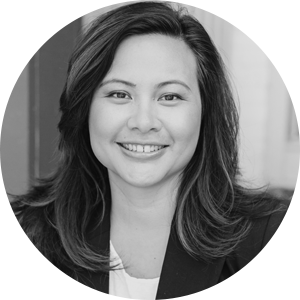What is a reverse mortgage?
A reverse mortgage is a home equity loan with deferred payments. You receive the funds tax-free, as the money is considered a loan rather than income. With a reverse mortgage, payment options, such as a lump sum or periodic installments, are flexible.
When you agree to a reverse mortgage, you are borrowing against the equity you have in your home. The amount you borrow and how interest is charged — commonly referred to as the schedule — is negotiable, just like any other type of loan. The difference with a reverse mortgage is that you won’t need to make monthly payments, as you would with a home equity line of credit (HELOC) or traditional mortgage. Instead repayment of a reverse mortgage is deferred — with the balance owed due when you sell your home or when you die.
The deferred repayments benefits retirees, as many live off fixed earnings, either from government or work pensions or from invested savings. Removing the burden of monthly payments in retirement helps retirees manage cash-flow better, particularly when on a fixed income The lender makes money because the interest charged on the loan accrues over time and is added to the final sum owed.
The magic of a reverse mortgage is that you only need to repay the loan once you sell the property, move out permanently, or pass away. You can continue living in your home without mortgage payments but must maintain the property, including paying property taxes and insurance.
To take advantage of a reverse mortgage, you must meet certain requirements:
- Aged 55 or older
- The property with the reverse mortgage must be your primary residence
- You can only borrow up to 59% of your home's value and this limit includes all outstanding loans
How much home can you afford?
Whether you're hunting for a new home or looking to refinance your mortgage, knowing how much your new loan might cost you is critical. Use our handy mortgage calculator to help you understand what your payments could look like.
Get StartedIs a reverse mortgage a good idea in Canada
A reverse mortgage can be a great solution for retirees with not enough saved to pay for ongoing living costs. As a loan that does not require immediate repayments, the burden of paying off the debt does not impact you, while you use the loan, and this leaves more cash flow available to pay for living expenses and other costs.
However, like all debt, a reverse mortgage can have its drawbacks. Because interest accumulates over time, there is the potential of getting into financial trouble. For that reason, Canadians are often required, by the reverse mortgage lender, to obtain independent legal advice before getting a reverse mortgage.
In general, a reverse mortgage is a good option if:
- You have unexpected costs like home repairs or medical bills
- You want to enjoy your retirement without the stress of moving
- You don't want to burden your children with your financial needs
- You want to stay in your beloved home and community as you age
- You need to boost your monthly cash flow to cover living expenses
On the flip side, a reverse mortgage may not be the best choice if:
- You expect to move in the near future
- You plan to leave your home to your heirs without any debts
- You can comfortably meet your cash flow needs without tapping equity
- You are uncomfortable with increasing debts as you approach and sustain retirement
What is the average interest rate on a reverse mortgage
Like all loans, interest rates on reverse mortgages can fluctuate. However, borrowers can expect to pay more for a reverse mortgage than a conventional mortgage. As of 2024, the average interest rate range for a reverse mortgage in Canada falls between 7% and 10%.
One reason reverse mortgages come with higher interest rates is that lenders will need to wait a longer period of time for the repayment of the loan. Other factors that impact the mortgage rate charged on a reverse mortgage include:
- Term length: A reverse mortgage generally carries a fixed rate throughout your term. Varying terms have different interest rates depending on current market conditions.
- Loan-to-value (LTV): Your interest rate increases as you borrow a larger percentage of your home's value.
There are also additional fees to consider. Like most mortgages, a borrower will need to pay administrative and discharge fees. Most reverse mortgage lenders charge between $1,000 and $2,000 in setup fees.
Reverse mortgage Canada pros and cons
Pros:
- Deferred payment structure
- Access tax-free cash from your home equity
- You retain ownership and control of your home
- Maintain your current lifestyle and independence
- Approximately the same interest rate charged as a Home Equity Line of Credit, but monthly interest payments are not required
Cons:
- Higher interest rates than traditional mortgages
- Reduces the equity you can leave to your estate
- Your debts increase over time as interest accrues
- Setup fees, appraisal costs, and closing expenses
- Prepayment costs make it difficult to reduce your balance
- Depending on the lender, limited to certain cities and provinces
Unexpected vet bills don’t have to break the bank
Life with pets is unpredictable, but there are ways to prepare for the unexpected.
Fetch Insurance offers coverage for treatment of accidents, illnesses, prescriptions drugs, emergency care and more.
Plus, their optional wellness plan covers things like routine vet trips, grooming and training costs, if you want to give your pet the all-star treatment while you protect your bank account.
Get A QuoteWhere to get a reverse mortgage in Canada
Not all mortgage lenders offer reverse mortgages. Instead, you’ll need to work with a company that specializes in reverse mortgages or with a mortgage broker with knowledge and access to this type of home loan funding.
For instance, Homewise is an independent full-service mortgage broker that offers a turnkey approach to all types of home loans, including reverse mortgages. Talking to a Homewise mortgage broker is free and could help you determine the best options, for your needs.
For those ready to start the reverse mortgage application process, consider the following options:
- Homewise — Offers insight and advice from independent mortgage brokers, along with reverse mortgage options
- HomeEquity Bank - Provides the CHIP reverse mortgage
- Equitable Bank - Offers reverse mortgages in select cities
This is not an exhaustive list. There are some provincially regulated institutions, and mortgage lenders offer reverse mortgages to Canadian homeowners, plus some banks now offer this home loan product.
Which banks in Canada offer reverse mortgages
You can get a reverse mortgage from a handful of financial institutions in Canada. This includes key players such as HomeEquity Bank Equitable Bank and smaller options such as provincially regulated institutions and mortgage brokers.
How does a reverse mortgage work in Canada
You'll need to apply initially, as explained in the following section. Once approved, you can receive the money as a one-time lump sum or in regular installments. Any amount borrowed is added to your loan balance and accrues interest. It's tax-free income since you'll eventually need to repay the debt.
You can continue living in your home as usual. You'll retain the title and responsibility for your home, meaning you'll need to continue paying property taxes, home insurance, and maintenance costs.
The loan becomes due when you move out, sell, default, or pass away. At the end of the mortgage, you or your estate must repay the principal and interest owing. Any remaining equity belongs to you or your heirs.
How do I apply for a reverse mortgage in Canada?
You can apply for a reverse mortgage at your chosen financial institution. However, you must meet the following criteria to qualify:
- You must be a Canadian homeowner
- Be at least 55 years of age, or older old
- The home must be your primary residence
- Agree to have your property appraised to determine its current market value
- Maintain your home in good condition and stay current on taxes and insurance Keep in mind that all individuals listed on the title for the property must meet these criteria.
To help, consider using the Homewise reverse mortgage calculator
Bottom Line
For many Canadian homeowners, a reverse mortgage can be a strategic way to unlock the wealth in their property and improve their cash flow in retirement. With the recent rise in home prices, now could be an optimal time to leverage your home equity.
However, carefully considering both the benefits and costs involved is crucial. Discuss your options with a trusted financial professional who can help you assess whether a reverse mortgage aligns with your bigger-picture goals.
You're 5 minutes away from the best mortgage
Searching for your perfect mortgage shouldn’t be hard. Homewise is an online brokerage that will negotiate on your behalf with more than 30 big banks and other lenders, completely free, and it only takes five minutes to apply.
If you're in the market for a new mortgage, or if you're looking to refinance before interest rates rise again, go to Homewise now and answer a few simple questions to get started.









